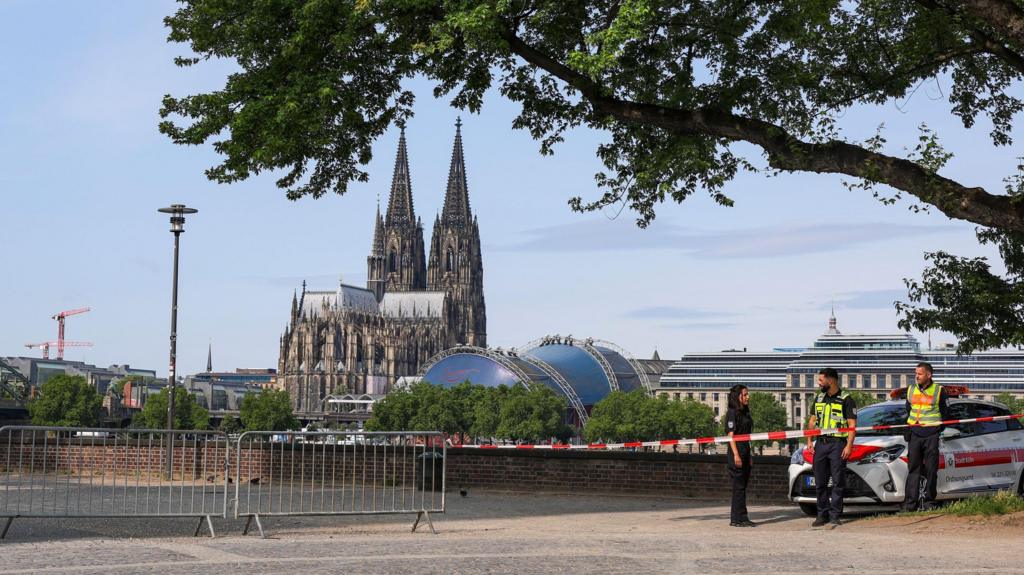Cologne, Germany, is undertaking a large-scale evacuation impacting approximately 20,500 residents. The city center is being cleared to allow experts to defuse three unexploded World War Two bombs.
Discovered Monday in a Deutz shipyard, these American bombs necessitate a 1,000-meter security perimeter, marking the largest operation of its kind since the war’s end, according to city officials.
The evacuation encompasses homes, businesses, a major hospital, and Cologne’s central train station. Authorities have warned residents that non-compliance will result in forced removal and potential fines.
Ambulances assisted in the evacuation of intensive care patients from Eduardus Hospital. While the discovery of unexploded ordnance is not uncommon in German cities like Cologne and Berlin, the size of these bombs necessitates this extensive operation.
The bomb disposal team plans to defuse the ordnance on Wednesday, contingent upon the complete evacuation of the densely populated area. The process began with door-to-door notifications, resulting in significantly reduced activity in the affected Old Town and Deutz districts.
Numerous businesses, cultural institutions (including the Philharmonic Hall and several museums), government buildings, hotels, and schools are affected. Transport is severely disrupted, with road closures, train cancellations, and the closure of Messe/Deutz station.
Designated centers provide refuge for those without alternative accommodations. Residents are advised to remain calm, bring identification and essential medications, and make provisions for pets. While Cologne Bonn Airport remains operational, travel disruptions are anticipated.
The evacuation has impacted various events, including the relocation of fifteen wedding ceremonies scheduled for the historic town hall.
This story has been updated to remove an incorrect description of the size of the bombs.
Most of the people who were evacuated as children are now in their mid-90s.
The Red Arrows flew over Sturminster Common as part of commemorations to mark the men’s deaths.
A fuselage of a Spitfire is on display at The Spitfire and Hurricane Museum in Manston.
The S/S Hestmanden, which served as a World War Two convoy vessel, will be berthed on the Tyne.
Sandy Rodger, from Rye, now has his father’s documents after they were found in a desk in Scotland.

